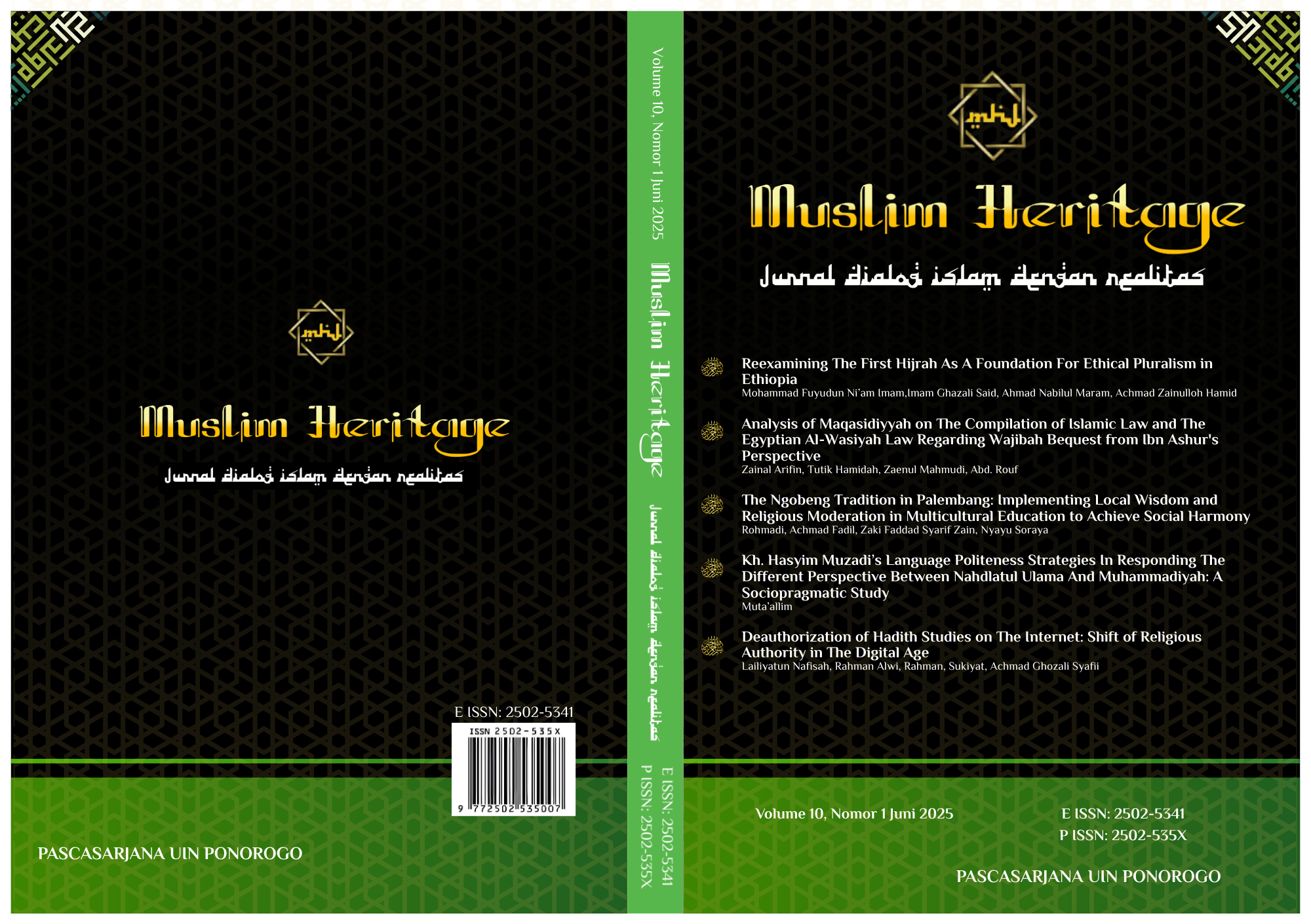Maslahah Mursalah in Ultra Petita Decision of The Constitutional Court
DOI:
https://doi.org/10.21154/muslimheritage.v10i1.10764Abstract
Ultra Petita refers to a court decision that goes beyond what was requested. Judges handling certain cases are limited to the issues raised by the parties involved. If the judge grants more than what was requested, the decision falls under Ultra Petita. In this context, the judge is only authorized to consider the claims and lawsuits based on those claims (iudex non ultra petita or ultra petita non cognoscitur). The judge only determines whether the issues at issue are true or false. Judges are prohibited from increasing or decreasing the demands and may not grant more than what is requested. This research aims to analyze two things. First, it discusses how the Constitutional Court's ultra petita decision is constructed. Second, it discusses how the principle of maslahah-mursalah is applied in the ultra petita decision of the Constitutional Court. By using descriptive analysis, the results show that the decisions of the Constitutional Court are an effort to protect the constitutional rights of citizens. Second, the ultra petita decision is in line with the principles of maslahah-mursalah. Ultra petita decisions allow constitutional judges to provide fair and valuable decisions and provide legal certainty.
Abstrak
Ultra Petita mengacu pada keputusan pengadilan yang melebihi apa yang diminta. Hakim yang menangani kasus-kasus tertentu terbatas pada masalah yang diajukan oleh pihak-pihak yang terlibat. Jika hakim mengabulkan lebih dari yang diminta, keputusan tersebut termasuk dalam Ultra Petita. Dalam konteks ini, hakim hanya berwenang untuk mempertimbangkan tuntutan dan tuntutan hukum yang didasarkan pada tuntutan tersebut (iudex non ultra petita atau ultra petita non cognoscitur). Hakim hanya menentukan apakah isu yang dipermasalahkan benar atau salah. Hakim dilarang menambah atau mengurangi tuntutan dan tidak boleh mengabulkan lebih dari yang diminta. Penelitian ini Bertujuan menganalisis dua hal. Pertama, membahas bagaimana putusan ultra petita Mahkamah Konstitusi dikonstruksikan. Kedua, membahas bagaimana prinsip maslahah-mursalah diterapkan dalam putusan ultra petita Mahkamah Konstitusi. Dengan menggunakan analisis deskriptif, Hasil penelitian menunjukkan bahwa putusan-putusan Mahkamah Konstitusi merupakan upaya untuk melindungi hak-hak konstitusional warga negara. Kedua, putusan ultra petita sejalan dengan prinsip-prinsip maslahah-mursalah. Putusan ultra petita memungkinkan hakim konstitusi untuk memberikan putusan yang adil dan bernilai serta memberikan kepastian hukum.
Downloads
Published
Issue
Section
License

This work is licensed under a Creative Commons Attribution-NonCommercial 4.0 International License.
Requirements to be met by the author as follows:
- Author storing copyright and grant the journal right of first publication manuscripts simultaneously with licensed under the Creative Commons Attribution License that allows others to share the work with a statement of the work's authorship and initial publication in this journal.
- Authors can enter into the preparation of additional contractual separately for non-exclusive distribution of a rich version of the journal issue (eg:post it to an institutional repository or publish it in a book), with the recognition of initial publication in this journal.
- Authors are allowed and encouraged to post their work online (eg, in institutional repositories or on their website) prior to and during the submission process, because it can lead to productive exchanges, as well as citations earlier and more severe than published works. (see The Effect of Open Access).

















